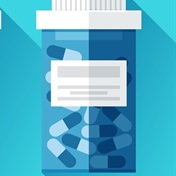In many countries, the abuse and trafficking of prescription drugs, including stimulants and painkillers, now equals or exceeds the use of illicitly manufactured heroin, cocaine, amphetamine and opioids, according to the Vienna-based International Narcotics Control Board (INCB).
In the United States, it is second only to cannabis.The massive demand for these drugs - together with lifestyle medicines such as Pfizer's Viagra - has led to an explosion in counterfeits, sometimes with fatal results.
"The sophistication of the counterfeiters certainly has increased tremendously," Gisela Wieser-Herbeck, a drug control officer at the INCB, told Reuters.
"It's a market where you can make a lot of money."
Can be fatal
The human cost can be devastating. Victims include women in Argentina who died after taking a bogus anaemia treatment, deaths in Cambodia due to fake malaria drugs, and children in Haiti and India killed by paracetamol made with antifreeze.
In many African countries and parts of Asia and Latin America more than 30 percent of medicines on sale may be counterfeit, according to the World Health Organization (WHO).
Most industrialised countries have a fake drug rate of less than 1 percent, although a recent spate of fake cholesterol, schizophrenia and cancer drugs in Europe has raised concerns that criminals are spreading their net.
No controls
The INCB, which will address the problem at its next session in November, has called on governments to do more to enforce existing legislation. But tackling the criminal trade is difficult.
"The Internet provides a perfect channel because there is no national control mechanism, there is no quality assurance and there is nobody who is going to ask where you got the supply," Wieser-Herbeck said.
Properly regulated, Internet pharmacies can provide a valuable service by increasing competition and offering access to treatments in underserved areas.
But all too often the online world is a Wild West of spam e-mails and hard-to-trace suppliers.
Very few pharmacies accredited
A global survey last month by US-based brand protection firm MarkMonitor found only four of 3 160 online pharmacies studied were accredited as Verified Internet Pharmacy Practice Sites, the industry standard.
And average prices for six top-selling drugs on the non-accredited sites were 75 percent cheaper than on approved ones, suggesting most products were dubious.
Wieser-Herbeck said many bogus drugs appeared to originate in Asia, especially China, whose image has been badly tarnished recently by a range of product safety scares.
In July, China executed its former head of the State Food and Drug Administration for corruption and dereliction of duty. Later the same month, 15 members of a crime ring were arrested for selling fake drugs, including a counterfeit rabies vaccine. – (Reuters Health)
Read more:
Buying meds online can be risky
No SA rules on cure-alls
September 2007




 Publications
Publications
 Partners
Partners














